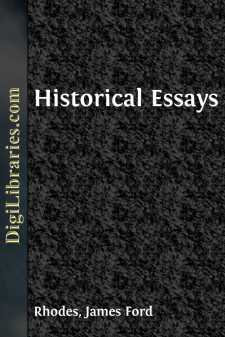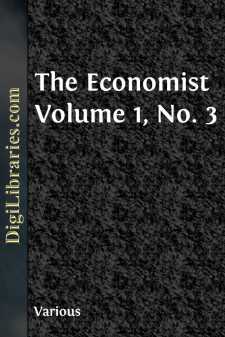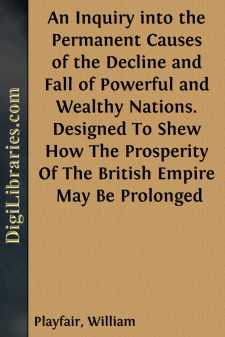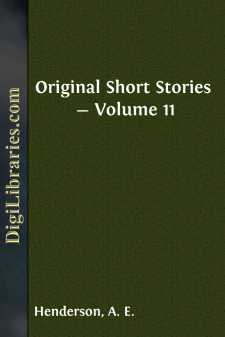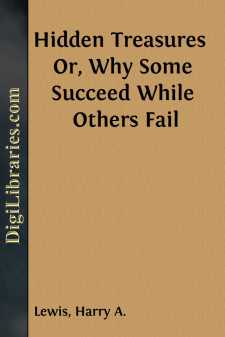Categories
- Antiques & Collectibles 13
- Architecture 36
- Art 48
- Bibles 22
- Biography & Autobiography 813
- Body, Mind & Spirit 142
- Business & Economics 28
- Children's Books 15
- Children's Fiction 12
- Computers 4
- Cooking 94
- Crafts & Hobbies 4
- Drama 346
- Education 46
- Family & Relationships 57
- Fiction 11829
- Games 19
- Gardening 17
- Health & Fitness 34
- History 1377
- House & Home 1
- Humor 147
- Juvenile Fiction 1873
- Juvenile Nonfiction 202
- Language Arts & Disciplines 88
- Law 16
- Literary Collections 686
- Literary Criticism 179
- Mathematics 13
- Medical 41
- Music 40
- Nature 179
- Non-Classifiable 1768
- Performing Arts 7
- Periodicals 1453
- Philosophy 64
- Photography 2
- Poetry 896
- Political Science 203
- Psychology 42
- Reference 154
- Religion 513
- Science 126
- Self-Help 84
- Social Science 81
- Sports & Recreation 34
- Study Aids 3
- Technology & Engineering 59
- Transportation 23
- Travel 463
- True Crime 29
Historical Essays
Description:
Excerpt
HISTORY
My theme is history. It is an old subject, which has been discoursed about since Herodotus, and I should be vain indeed if I flattered myself that I could say aught new concerning the methods of writing it, when this has for so long a period engaged the minds of so many gifted men. Yet to a sympathetic audience, to people who love history, there is always the chance that a fresh treatment may present the commonplaces in some different combination, and augment for the moment an interest which is perennial.
Holding a brief for history as do I your representative, let me at once concede that it is not the highest form of intellectual endeavor; let us at once agree that it were better that all the histories ever written were burned than for the world to lose Homer and Shakespeare. Yet as it is generally true that an advocate rarely admits anything without qualification, I should not be loyal to my client did I not urge that Shakespeare was historian as well as poet. We all prefer his Antony and Cleopatra and Julius Cæsar to the Lives in North’s Plutarch which furnished him his materials. The history is in substance as true as Plutarch, the dramatic force greater; the language is better than that of Sir Thomas North, who himself did a remarkable piece of work when he gave his country a [p2] classic by Englishing a French version of the stories of the Greek. It is true as Macaulay wrote, the historical plays of Shakespeare have superseded history. When we think of Henry V, it is of Prince Hal, the boon companion of Falstaff, who spent his youth in brawl and riot, and then became a sober and duty-loving king; and our idea of Richard III. is a deceitful, dissembling, cruel wretch who knew no touch of pity, a bloody tyrant who knew no law of God or man.
The Achilles of Homer was a very living personage to Alexander. How happy he was, said the great general, when he visited Troy, “in having while he lived so faithful a friend, and when he was dead so famous a poet to proclaim his actions”! In our century, as more in consonance with society under the régime of contract, when force has largely given, pay to craft, we feel in greater sympathy with Ulysses; “The one person I would like to have met and talked with,” Froude used to say, “was Ulysses. How interesting it would be to have his opinion on universal suffrage, and on a House of Parliament where Thersites is listened to as patiently as the king of men!”
We may also concede that, in the realm of intellectual endeavor, the natural and physical sciences should have the precedence of history. The present is more important than the past, and those sciences which contribute to our comfort, place within the reach of the laborer and mechanic as common necessaries what would have been the highest luxury to the Roman emperor or to the king of the Middle Ages, contribute to health and the preservation of life, and by the development of railroads make possible such a gathering as this,—these sciences, we cheerfully admit, outrank our modest enterprise, which, in the words of Herodotus, is “to preserve from decay the remembrance [p3] of what men have done.” It may be true, as a geologist once said, in extolling his study at the expense of the humanities, “Rocks do not lie, although men do;” yet, on the other hand, the historic sense, which during our century has diffused itself widely, has invaded the domain of physical science....


